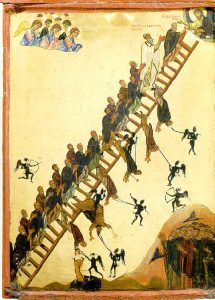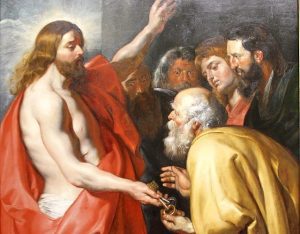We know what we believe. It’s summed up in the Apostle’s Creed. We should examine our beliefs about worldly concerns to see if we’ve been using facts or press releases to form our opinions.
Five years ago, when there wasn’t much of it, natural gas was touted as “the ideal fuel, clean and efficient”. In the last year, near-inexhaustible quantities of natural gas are made available by drilling a mile or two into the ground and “frakking” the gas-containing shale. In that time, natural gas was quickly demonized. The very same alarmists who’d extolled its virtues when there was no natural gas quickly came to the conclusion that it had to be stopped, making the sudden reversal in a matter of months.
“We can’t have ‘frakking’!”, many have been led to believe. “It will destroy our water supply!”
Fact, or press release? We ask what the Roman’s asked when analyzing policy decisions: “Qui bono?” Asking “Who benefits?” begins a search facts.
When we see that the frakking takes place a mile or so below the water aquifers, it’s almost impossible to imagine the one or two percent of chemicals in frakking water being able to penetrate upwards through a mile of stone, shale, and clay in meaningful quantities.
So, who would say it was “dangerous”? We may recall Thomas Edison’s experience with the natural gas companies. As Edison began the process of electrifying a nation, the natural gas companies had gas lights in millions of homes, street lights, and businesses.
As the advantages of electricity became apparent, the gas companies began to tell people “Electricity causes sterility.”
Those who based their opinions of the world on press releases believed and worried mightily. Others asked “Who benefits?”, and immediately began to save money by having their property wired for electricity.





